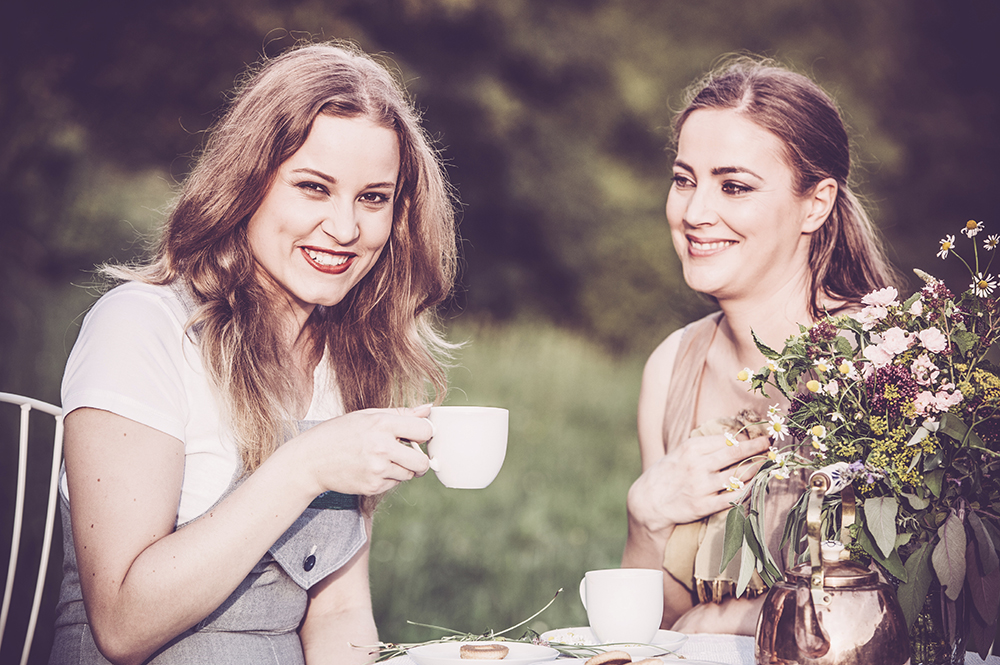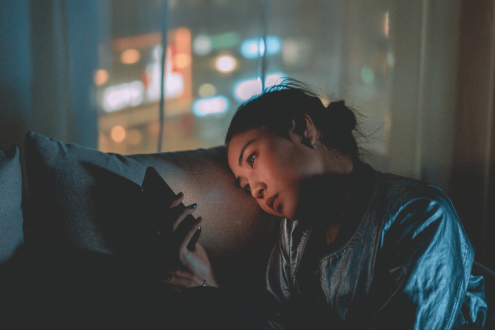Drunk on life: could the new Soberista trend transform your life?
Imagine a fun, joy-filled big night out – without the killer hangover the next morning. Could the new Soberista trend transform your life? Lucy Fry talks us through her journey

Sinking into the bed; I feel absolutely exhausted and quite melancholic. I’ve woken up too early with a sour taste in my mouth and a heaviness in my brain. ‘Not again,’ I think. I berate myself for yet again allowing ‘just one’ post-work drink turn into a bottle so that now, next morning, I’m wishing away my day. It’s been the same every morning for months. But something’s different now. I’ve tried moderation; it doesn’t work for me. It’s time to change once and for all – to cut booze out of my life.
That was five years ago and perhaps seen as a dramatic move. However, nowadays more of us are giving up alcohol for good. Two million people took part in Alcohol Concern’s Dry January this year and the Office of National Statistics says the average person drinks around 40 per cent less than in 2004 (one in five doesn’t drink at all). And it’s not just binge-drinking either – more of us are questioning the need for a nightly glass, as our definition of moderate drinking shifts.
This even applies to the one remaining alcoholic bastion of health – red wine – since new guidelines from the Department of Health declared the benefits for heart health only apply to women over 55 (and just five units or two 175ml glasses, a week). It is bringing the recommended male limit in line with women’s due to new links between alcohol, cancer and heart disease, and advising at least two to three alcohol-free days a week. It begs the question: how will we view alcohol in 10 or 20 years? Will it be like tobacco – once everyone smoked, now smokers are practically social pariahs.
When I stopped drinking half a decade ago, I cowered in the pub, pretending my lime and soda was a G&T for fear of being teased or shamed into having a ‘real’ drink. But there are at least a couple of non-drinkers at every occasion I attend now – the hungover look no longer passes as fun or fashionable at work. Then there’s health to consider. Like me, many of my friends are more interested in the healing properties of kale than new cocktails. Even celebrities are more likely to be photographed falling out of a yoga pose than a club these days, with Tyra Banks, Kim Catrall and Jennifer Lopez all speaking up about their decision not to drink.
Something changed…
For me, deciding on a life without alcohol wasn’t a matter of trend or aesthetics. To my circle, my boozing was normal. I was in my late twenties and drinking had been an integral part of my upbringing and the world I worked and socialised in. And as I gravitated towards those with similar habits, it didn’t seem unusual. But under the surface things were growing turbulent. Late hedonistic nights wiped out the entire next day. I often cancelled work or social plans because of massive hangovers. Soon it wasn’t one nightly glass but two, then a bottle – more if I went out with hard-drinking friends. My body felt ragged; my mood was increasingly erratic.
Though I didn’t always realise it, I used alcohol to shut out my anxiety and self-consciousness in a crowd – to help me quieten negative thought loops in my head. Each morning I’d wake up groggy and promise myself that I wouldn’t drink later, yet by 7pm after work and the gym I’d reward myself with a wine purchase, promising that tomorrow was the day I’d stop.
And stop I did – once for five whole weeks. But these periods of enforced teetotalism only enhanced the issue; they became part of a mental obsession with alcohol. I counted the days I abstained, and when I restarted, I binged, ending up in a demoralising cycle of determination and defeat that rendered my relationship with alcohol even more unhealthy. My partner could take or leave booze, would often leave a half glass unfinished and couldn’t tell you how many days it was since her last drink as she genuinely hadn’t noticed. Should it really be this hard, I wondered? Are other people struggling in the same way?
By 28 I began to wonder if I had a problem; by 29 I was sure I did. Every month, my standards slipped. I’d already done things (like drink and drive, or drink alone in secret) that I had promised myself I’d never do. Ironically, the habit that had begun socially as a teenager was now causing me to isolate. It affected my finances, friendships, work, my relationship, and my mental health.
Giving it up
Eventually, two months off 30, I sought professional help and began the process of getting sober. The first step was to admit I had no power whatsoever over alcohol, and that my life (if I drank) became unmanageable. After that, I had to connect with others who were going through similar experiences and develop a support network of non-drinkers whom I could share feelings with and call on when cravings hit.
The initial benefits were incredible. After two to three weeks my energy increased and after two to three months I felt my mind more focused. After the first year of sobriety, the cravings reduced and by the end of the second year were uncommon. But in some ways that was only the start:
I now began to tackle the emotional symptoms – sadness, frustration, lack of self acceptance and a desire to just let go – that had caused me to first seek refuge at the bottom of a bottle. Now I started to be curious about these, and look for coping strategies that didn’t involve alcohol. Some days were tumultuous, and I had to sit tight and trust that it would pass, but slowly I began to feel a freedom I never had – the liberation of not needing a substance to determine my moods.
Interestingly, it’s not just those who take on more than the recommended weekly intake that can experience the benefits. Six months ago my 40-year-old sister, who drank just one glass of wine most nights, also kicked the habit. I was surprised, as to me she seemed abstemious – never out-of-control drunk and usually content with one glass. Yet she said she still felt bound to the bottle, willing the children to g o to bed each night so she could relax with a warming glass of red.
Having stopped, she said, her health and wellbeing have improved more dramatically than she’d expected given how little she actually drank. These days she sleeps better, wakes up with a clear head and has more sustained energy levels. She’s able to be more present with her children and more emotionally in tune with herself.
She’s pretty sure, she says, that she won’t go back to drinking now. I’m hopeful I won’t either.
Helpful support networks and alcohol-free activities:
Soberistas is a website and online community for non-drinkers. It was founded in 2012 and now has 35,000 members. Its purpose, explains founder Lucy Rocca, is to offer people a chance to share freely with like-minded others. ‘I know from my own decades of heavy alcohol consumption that those who can’t control their drinking often feel as though they can’t tell anyone about their problem. Soberistas is a place to offload, and this is often the starting point for moving forward to a healthier and happier place without alcohol.’
Join Club Soda is a free educational website to help you find online support and make the changes you need around alcohol.
Sober Disco: Just because you don’t drink doesn’t mean you don’t want to dance either! Try fitness classes like Clubbercise, movement classes like 5 Rhythms and even a sober morning rave, Morning Gloryville.
Alcohol-free bars: It might sound counterintuitive but alcohol-free bars are slowly catching on. For a round-up of the best non-alcoholic drinks and ‘dry friendly’ see here. Try Redemption in London and So Bar in Nottingham.
Drink Aware has some tips for giving up drinking here.
Photograph: iStock









